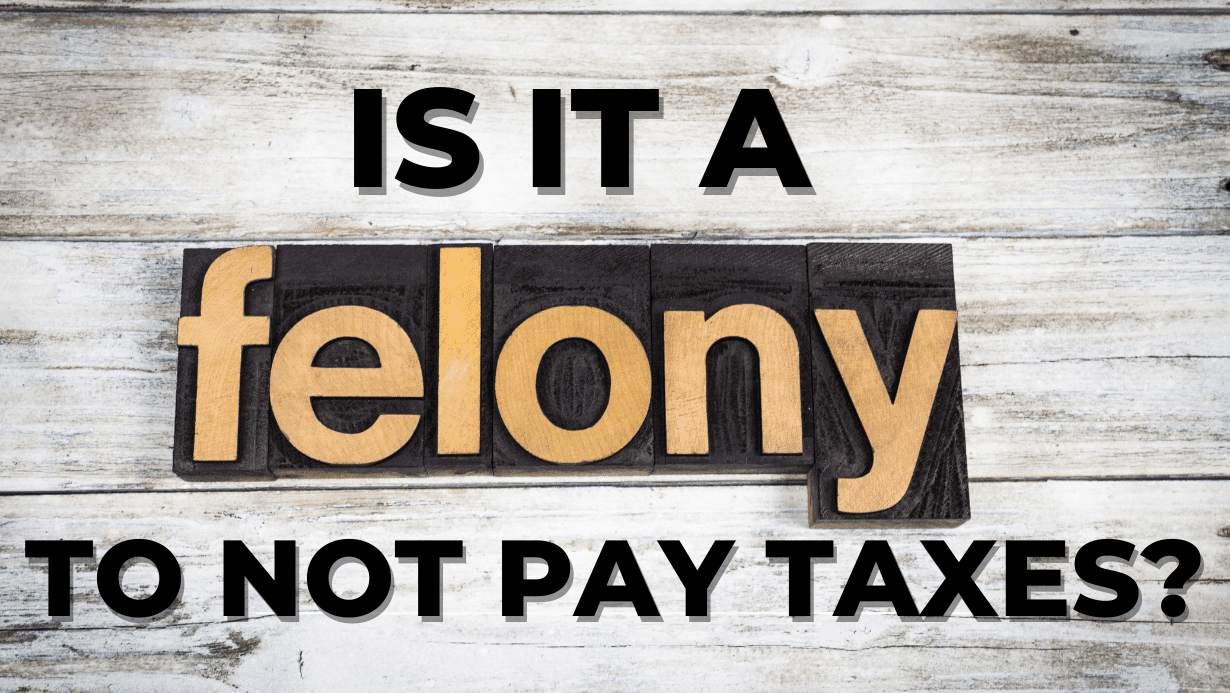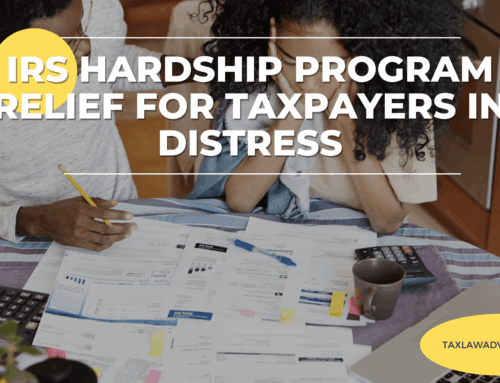Not paying your taxes to the IRS is a bad decision, but is it a felony? While not paying does carry certain penalties, you may be surprised to know that the more serious crime is not filing your taxes, which typically carries much harsher consequences. With this in mind, let’s take a look at the difference between not paying your taxes to the IRS and not filing them.
What Happens When You Don’t Pay Your Taxes
For the most part, you’re expected to pay your taxes when you file them. Most people do this once a year during tax season. However, many businesses file their taxes quarterly. It should also be noted that for most people, there is no need to take any action to pay taxes as they are deducted automatically from your paycheck. There are exceptions that we’ll get to later, but for now, let’s explore what happens when you don’t pay what you owe.
Generally speaking, if you don’t pay your taxes when you file like you’re supposed to, you’ll get a notification from the IRS telling you what you owe them and how long you have to pay it off. A lot of the time, you will also have to pay interest. This interest can be anywhere from a negligible 0.5% a month, to a massive 25%. The good news is that if you work out a payment plan with the IRS, your interest can be as low as 0.25% per month.
If you decide not to pay, not only will the interest begin to add up, but you’ll probably also be investigated and possibly arrested if things drag on long enough. However, this is rare since the IRS knows that you won’t be able to pay what you owe if you’re in jail. That said, individuals are much more likely to be investigated than corporations since corporations can typically afford to hire a team of lawyers that can drag things out in court and cause the IRS to lose money in the long run.
What Happens if You Don’t File Your Taxes
Surprisingly, this is much worse than filing but not paying. In fact, failing to file your taxes is a misdemeanor that can carry penalties as severe as a $250,000 fine for individuals and up to $500,000 for corporations. You can also serve jail time. While five years is typically the maximum sentence, there have been cases in which tax evaders were given harsher sentences such as Al Capone getting an 11-year sentence. On top of this, you can also be expected to pay between 5 and 25% interest since if you didn’t file your taxes then you obviously didn’t pay them either.
There is one exception to this though, and that’s if you are owed a refund. If this is the case and you don’t file your taxes, then you simply don’t get your refund. If you don’t file within three years of the original due date, then you lose your refund forever.
What to Do if You Can’t Pay Your Taxes
Times are tough so it is to be expected that some people would struggle to pay their taxes. This especially applies to those who are self-employed, run a small business, or work as a contractor. If you find yourself in this situation and you know you’re going to have difficulty paying your taxes, there are several options.
- Take Out a Loan or Use Credit – You can take out a loan or use credit to pay your taxes but you need to compare interest rates to those the IRS would give you if you worked out a payment plan with them. In many cases, the IRS’s interest rates will be lower, making this a poor option most of the time.
- Work Out a Payment Plan – This is probably the best option available. Let the IRS know that you’re going to have trouble paying and work out a monthly payment plan with them. Yes, you will be charged interest but it’s better than not paying and having that interest get bigger as time goes on. Have questions? Learn more about the IRS Fresh Start Program and Qualifications
Whatever you do, make sure you at least file your taxes on time. Not doing so will result in consequences that are much worse than simply not paying. Remember, the IRS doesn’t want you in jail because if you are, you can’t pay what you owe. Don’t give them an excuse to investigate you and hit you with massive fines just because you didn’t file your taxes on time.






